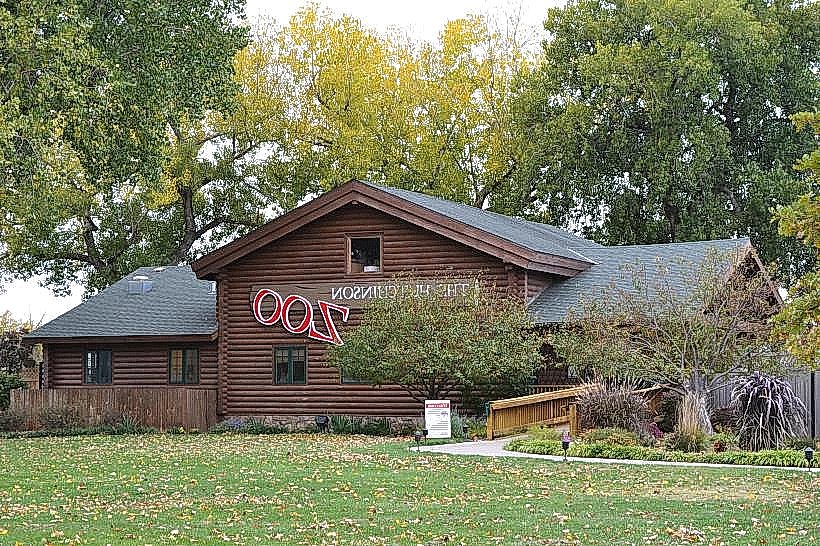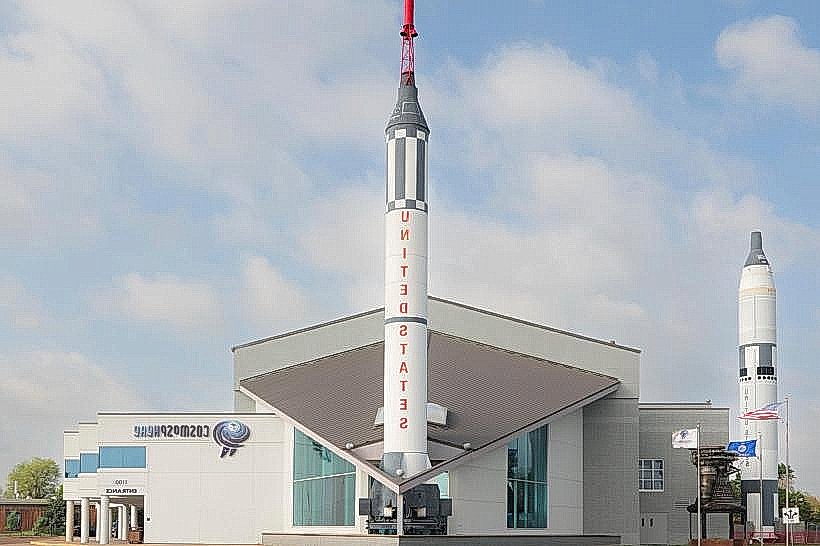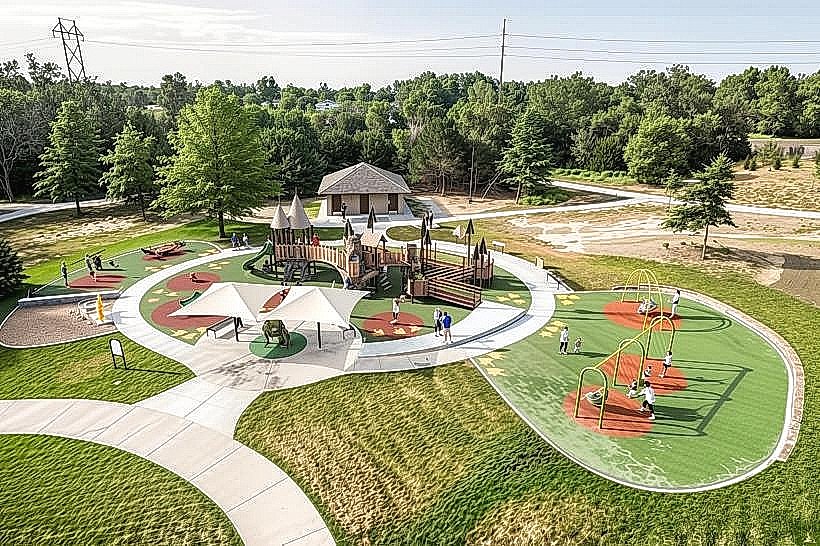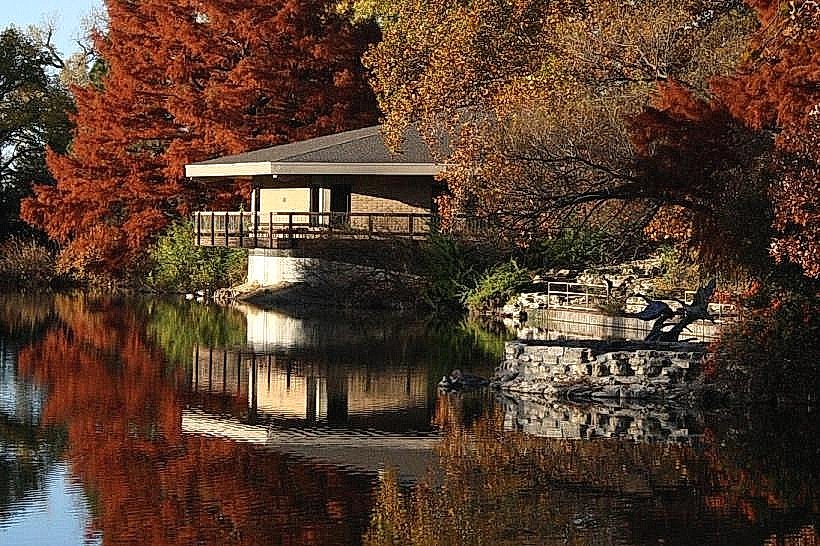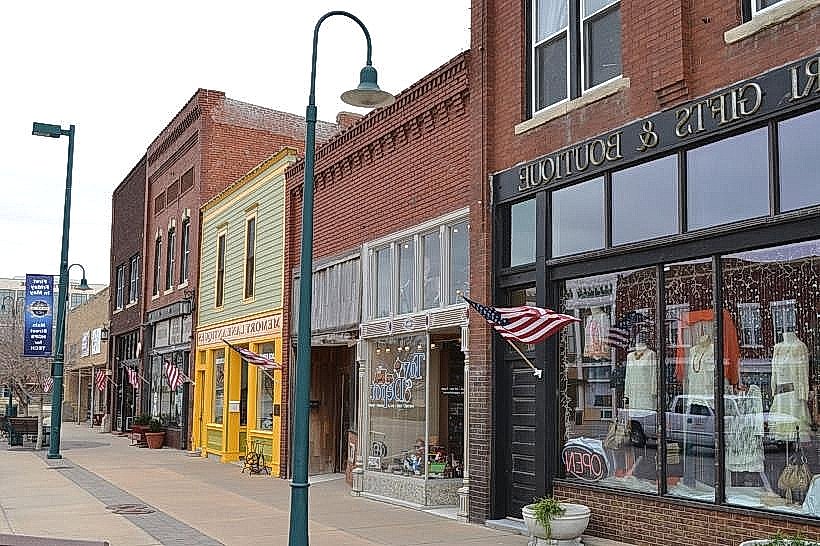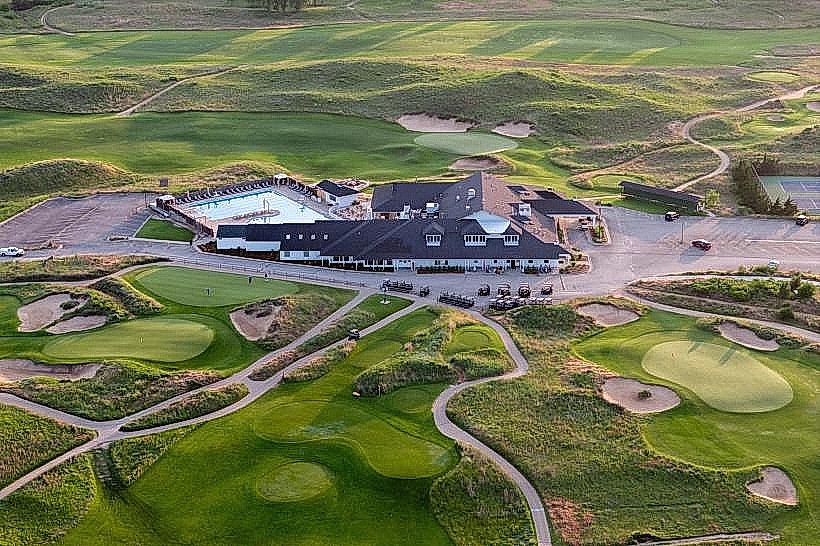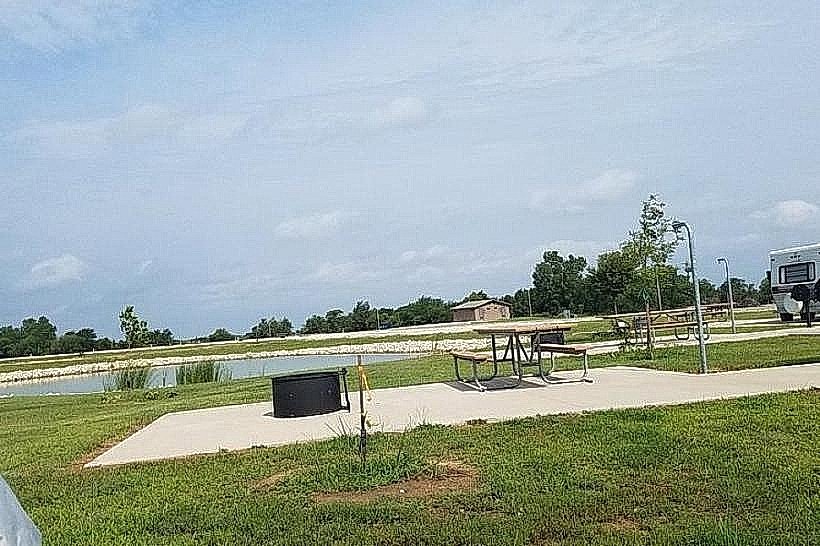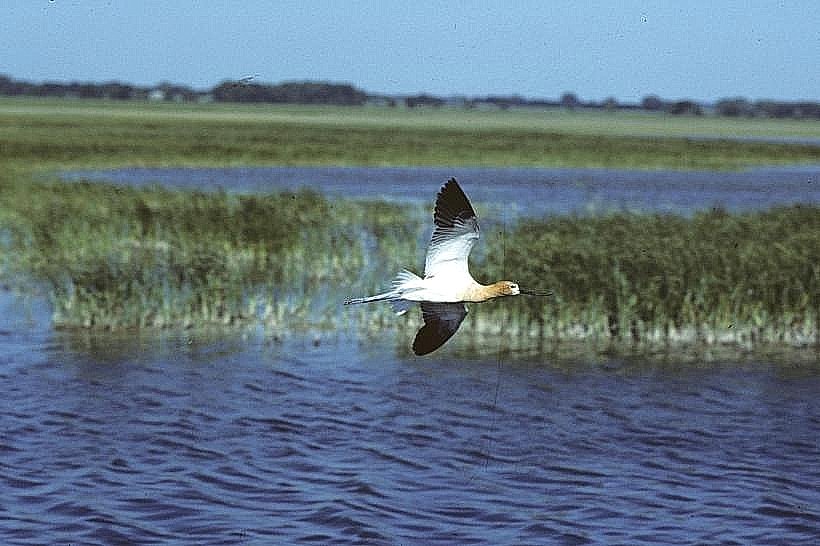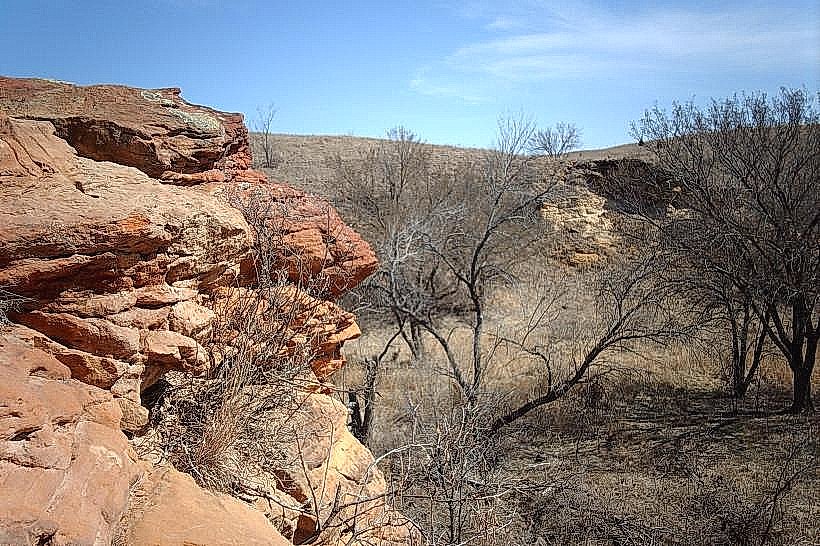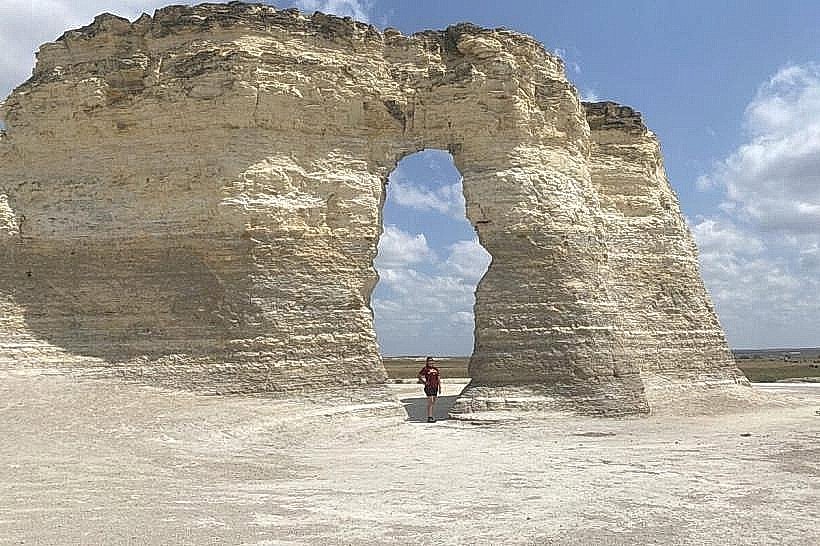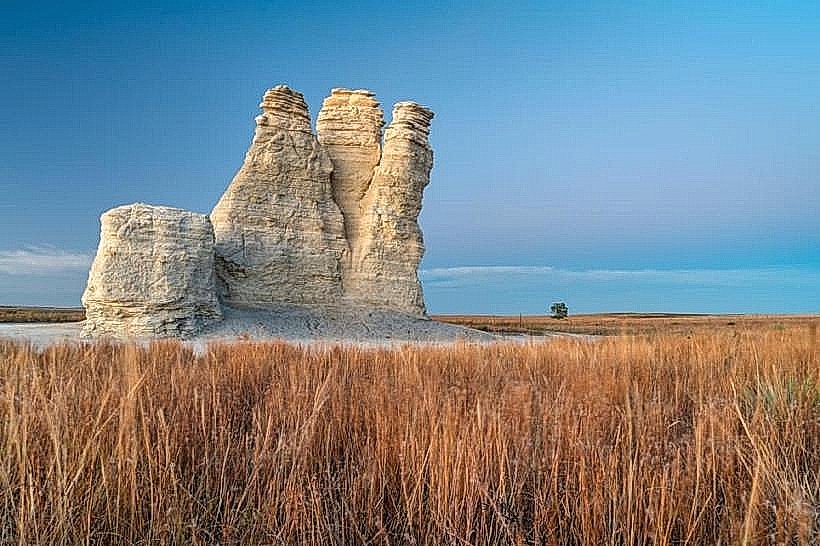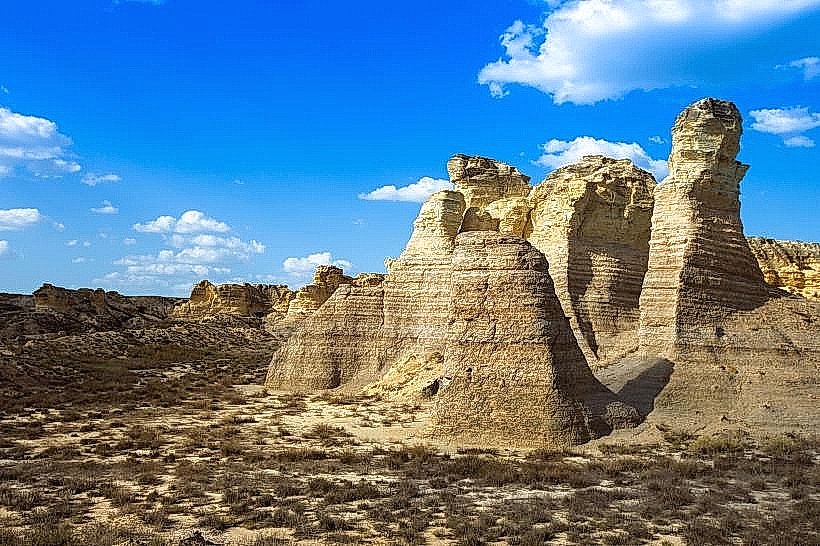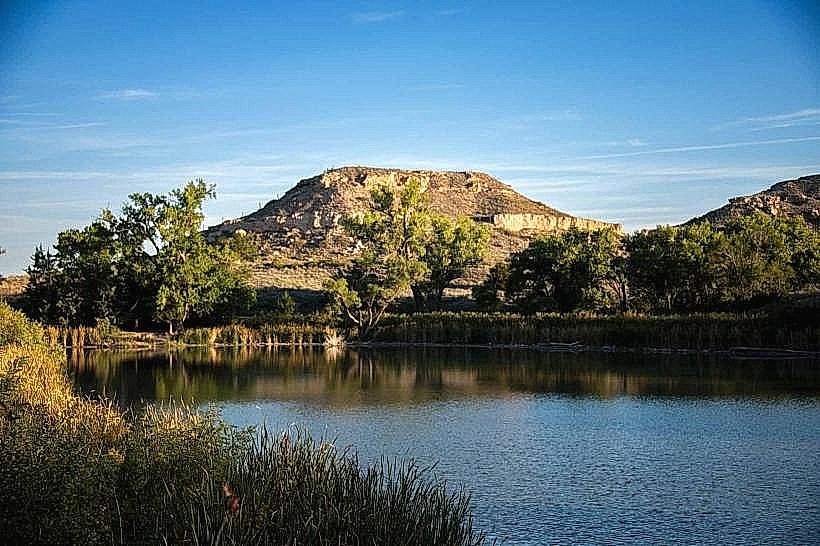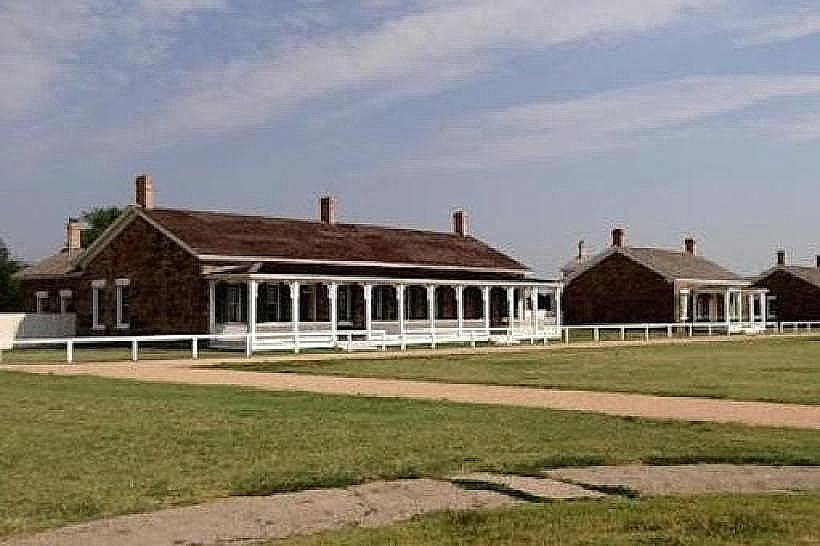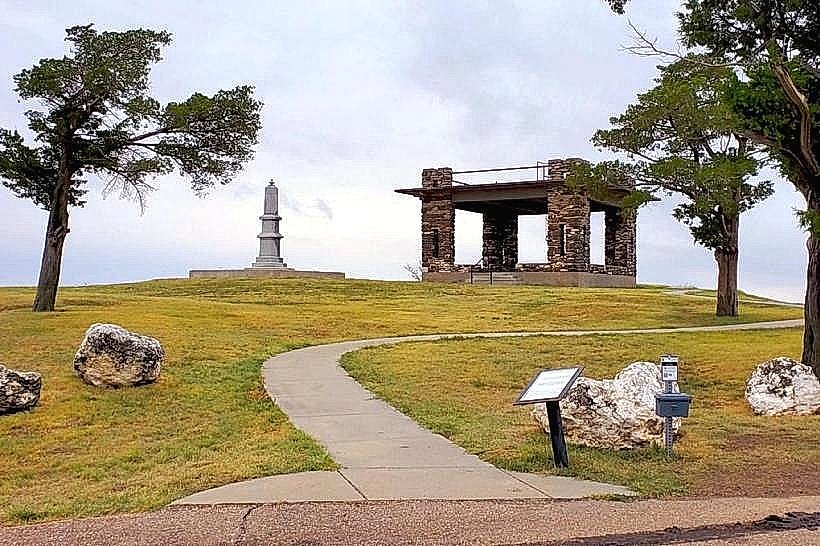Information
Landmark: Big Basin Prairie PreserveCity: Hutchinson
Country: USA Kansas
Continent: North America
Big Basin Prairie Preserve, Hutchinson, USA Kansas, North America
Big Basin Prairie Preserve is a protected grassland area located in Reno County, Kansas, west of Hutchinson.
It preserves a significant portion of the tallgrass prairie ecosystem.
Visual Characteristics
The preserve consists of rolling hills covered in native grasses, primarily Big Bluestem, Indiangrass, and Switchgrass. These grasses can reach heights of 1.5 to 2.5 meters during the growing season. Scattered throughout the prairie are wildflowers, varying in color depending on the season. The terrain is characterized by gentle slopes and shallow draws. No significant water bodies are present within the core preserve area.
Location & Access Logistics
Big Basin Prairie Preserve is situated approximately 16 kilometers west of Hutchinson, Kansas. Access is via State Highway 14. Turn south onto County Road 11 (also known as Yoder Road) and proceed for approximately 3.2 kilometers. The preserve entrance is on the west side of County Road 11. A gravel parking area is available at the trailhead. No public transportation services operate directly to the preserve.
Historical & Ecological Origin
The area is a remnant of the vast tallgrass prairie that once covered millions of acres in the central United States. It was established as a preserve to protect this ecosystem from agricultural conversion and development. The geological origin is sedimentary rock formations typical of the Great Plains, shaped by erosion over millennia. The ecological classification is tallgrass prairie, a biome characterized by its dominance of grasses.
Key Highlights & Activities
Hiking is permitted on designated unpaved trails. The primary trail is a 4.8-kilometer loop that traverses the central portion of the preserve. Birdwatching is a common activity, with opportunities to observe grassland-dependent species. Photography of the prairie landscape and flora is also a primary activity. No motorized vehicles are allowed within the preserve boundaries.
Infrastructure & Amenities
A small gravel parking lot is available at the trailhead. No restrooms, picnic facilities, or shade structures are present within the preserve. Cell phone signal (4G/5G) is intermittent and unreliable. No food vendors are located at or immediately adjacent to the preserve.
Best Time to Visit
For optimal viewing of wildflowers, late spring (May-June) is recommended. For the most vibrant grass colors and photographic lighting, early morning or late afternoon during summer (July-August) is suitable. The preserve is accessible year-round, but winter conditions can make trails difficult to navigate.
Facts & Legends
A unique feature of Big Basin Prairie Preserve is its "basin" topography, a large, shallow depression that historically held water after rainfall, creating a temporary wetland environment. This feature supports a distinct plant community. Local folklore does not extensively document specific legends tied to this particular preserve.
Nearby Landmarks
- Kansas Cosmosphere and Space Center (15km East)
- Dillon Nature Center (17km East)
- Hutchinson Zoo (17km East)
- Strataca: Kansas Underground Salt Museum (18km East)

